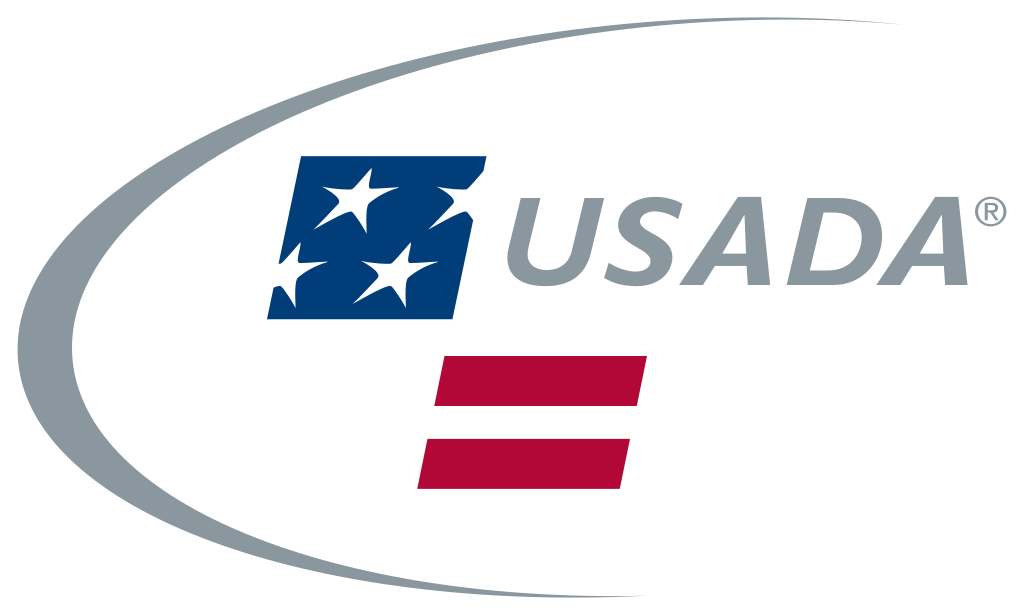By Alec Roberson and Mikhail Bryan
Innocent mistake or clear violation of anti-doping rules? In April of 2022, the United States Anti-Doping Agency (“USADA”) announced that Minnesota State goaltender Dryden McKay would be facing a 6-month ban from hockey for violation of its anti-doping policy. Dryden was a high-profile NHL free agent and recent Hobey Baker winner – awarded each year to the best Division I college hockey player. Many NHL teams were looking to pursue Dryden but took a pause partially because of his suspension. The Toronto Marlies of the AHL ultimately signed the young netminder. This article not only looks at the dynamics of anti-doping policies, but also highlights the risk that all athletes face daily and the importance of having great people in your corner.
What Happened?
The suspension comes on the heels of an apparent positive test for a banned substance dating back to January 2022. As we outlined in an earlier article, the NHL did not allow for their players to participate in the Olympics. As a result, teams like the United States and Canada pulled players from various Division I college hockey teams such as Minnesota State, Minnesota and Michigan. The United States did not choose Dryden as one of the three goaltenders, however selected him as an alternate. This meant that should any of the three goaltenders get injured or test positive for COVID-19, Dryden would be on standby to travel to the Olympics with Team USA.
Dryden’s Initial Results
Because Dryden was an alternate, he was subject to the same testing that all Olympians were required to undergo regarding performance enhancing drugs. The USADA oversees this process. When Dryden’s results came back, he was surprised to learn he tested positive for a banned substance – Ostarine. Ostarine is currently on the list of banned substances across multiple International and Olympic anti-doping federations and organizations. How much Ostarine was found in the urine sample? Trillionths of a gram.
Why Did Dryden Need the Supplement?
This trace amount is said to have no impact on the goaltender’s performance. Accordingly, Dryden explained the reason he was taking anything containing Ostarine in the first place. In mid-January, amidst the COVID-19 surge, Dryden decided to take an “all-natural” Vitamin D3 immune booster. A positive test for COVID would certainly impact the historic season both he and his team were having. Little did he know this same Vitamin would cause him to test positive in a different way. Unbeknownst to Dryden, trace amounts of Ostarine contaminated the Vitamin D3. Trace, but enough to show up on a test.
Dryden Challenges the Decision
Once the USADA found the Ostarine, they immediately suspended Dryden. However, Dryden shipped Vitamin D3 supplements (as well as other supplements) that he suspected of being contaminated to a lab for testing. If the tests showed that both the opened bottle AND other sealed bottles contained the Ostarine, the USADA could reduce Dryden’s suspension. In addition, an arbitrator could temporarily lift the initial suspension if Dryden met his burden of proving that the ingestion of the banned substance resulted from a contaminated product. After Dryden’s attorney requested an expediated hearing before the American Arbitration Association, the arbitrator temporarily lifted Dryden’s provisional suspension pending the results of the testing.
NCAA rules provide that athletes under a drug-testing suspension from a national or international sports governing body under World Anti-Doping Agency (“WADA”) codes can’t participate in NCAA sports for the duration of the suspension. However, if/when such governing body lifts the suspension or the suspension ends, the player may resume participation. Following the decision of the arbitrator, the NCAA and Minnesota State allowed Dryden to continue playing NCAA hockey. The results of the supplement testing ended up taking longer than the remainder of the NCAA season so Dryden could finish.
Who is the USADA?
As mentioned above, the USADA is a non-profit organization committed to overseeing, assisting and monitoring anti-doping amongst certain athletes in the United States. While not a governmental organization, the United States recognizes it as the premier anti-doping organization for Olympic, Pan American, and Paralympic sport in the United States. The USADA is a signatory to the WADA code. This means it follows the policies of the WADA code when it comes to substance abuse determinations and punishment. The Olympics as well as the IIHF also follow WADA codes.
Notably, the USADA authority does not extend to the NHL or the NCAA even though those leagues may respect the USADA’s decisions. Both of those organizations have their own anti-doping and substance abuse policies. Even though a lot of the policies are the same among those organizations, there are some differences. (The NHL’s substance abuse policies are provided in Section 47 of the Collective Bargaining Agreement). Note here, however, that Dryden will remain ineligible to participate in the NHL or AHL until his suspension is complete.
USADA’s Strict Liability for Substance Abuse
One aspect of the WADA codes that may differ from other leagues is that there is a “strict liability” standard when it comes to substance abuse. This means that even if an athlete was innocent and took the substance completely in error (such as Dryden), there is still a punishment. Other leagues such as the MLB and UFC have different standards. Interestingly, the UFC actually partners with the USADA on anti-doping enforcement.
HOWEVER, because of both the innocence of Dryden and the small amount of the substance, the punishment went from what could be a four-year suspension to a six-month suspension. Dryden’s lawyer, Paul Greene (a specialist in anti-doping cases), recommended Dryden take that six-month suspension since most suspensions Greene had seen under those circumstances followed that time frame. Greene knew that without figuring out where the Ostarine came from, a four-year suspension was likely. You have to show the contamination in both the opened bottle and a sealed bottle to get a suspension reduction.
So What Now?
After the NCAA cleared Dryden to continue playing in the NCAA, Dryden went on to lead his team to the national championship game in Division I college hockey. The Mavericks would end up losing that game 5-1 to the University of Denver. However, Dryden would win the Hobey Baker award the night before – the first time a goalie has won since Ryan Miller in 2001.
With Dryden’s senior campaign over, his focus shifted towards a professional hockey career – potentially in the NHL. The Toronto Marlies (the AHL affiliate of the Toronto Maple Leafs) signed Dryden to a two-year contract. Before he can begin, he must serve the six-month suspension. The suspension entails that he can practice with a team beginning on August 25, 2022 and can participate in games on October 11, 2022. When asked how he would respond about his suspension, Dryden stated that he accepted the risks of taking the substance, accepted his suspension, and had no intention of being a cheater or getting ahead.
This will likely be a story that fades as everyone starts to focus on Dryden’s playing ability again. However, there are some key takeaways.
What’s the Big Deal?
This story is one that unfortunately happens from time to time. Dryden is a promising young player who attempted to protect himself in a very legal and ethical way. That was turned upside down when the USADA served him with a suspension due to seemingly no fault of his own. This seems unfair. How was he supposed to know a Vitamin D3 supplement would have a banned substance in it?
Is the Punishment Fair?
This brings into question, is this policy fair? On one hand, if there was not a strict liability standard Dryden could fight the suspension and potentially walk away with no punishment. However, as anyone somewhat familiar with any legal adjudication-like system knows, that is rarely a quick process and results are never guaranteed…no matter how much of a slam dunk you think your case is.
The thing that is positive about this policy is that you pretty much know if you can show that you were innocent due to a contaminated legal substance, there is a clear process to follow that leads to a substantially less punishment than the initial one. There still is a level of fact finding and analysis involved (i.e. the testing of the substances). However, it appears to be a more straightforward process than leaving it completely open to someone’s determination. Sure, the arbitrator made its initial decision quickly. However, that burden was lower than for a final determination.
Dryden’s suspension also aligned with his offseason. In some ways Dryden was lucky in that fact. Should that be taken into consideration with the punishment or is it just a roll of the dice? Unfortunately, I don’t think athletes have such luxury.
The Importance of Helping Hands – Dryden’s Attorney
One other piece of this story that is worth noting is the importance of Dryden’s attorney. Dryden’s attorney navigated so many specifics in this situation that led to the reduced suspension. Without that knowledge, Dryden may have had no choice but to serve the four-year suspension. His reaction alone to the news of his potential suspension was story worthy. Dryden’s words were, “Shock. Four years was staring me in the face. My career might be over…. [A] 30-second phone call. ‘Hey, you tested positive, and it’s a four-year ban, potentially.’”
Without his attorney, Dryden may have appealed that decision and fought it without any relevant evidence and support, likely losing that appeal. And this isn’t a knock to Dryden’s knowledge or others around him. This just shows the importance of having knowledgeable people in the athlete’s corner.
It’s Not Just Attorneys….
Beyond an attorney, there are great people out there to support and guide players from a young age all the way into retirement. Coaches, trainers, and other hockey development focused personnel can be particularly impactful in players’ lives. Not only to instruct them on the ice, but how to navigate the demands of the various levels of hockey. Nutritionists and medical personnel can be particularly helpful as well.
Outside the Sport
As players progress into the professional hockey world, having a good agent, attorney, financial advisor, and/or CPA can help the player successfully navigate all of the off-ice aspects of being a pro hockey player. The player can focus on the actual game. Sometimes, a few people can wear multiple hats in these roles. They can also help prevent the all-too-common situation where players are taken advantage of financially. This happened to Jack Johnson a few years ago and is why having trustworthy people in your corner is so important. An example of a great hockey focused financial advising firm is GAVIN Hockey Wealth Specialists. Started by ex-NHLer Stew Gavin, they focus on helping players navigate their finances while playing hockey and beyond into retirement.
Some of these people are there out of their personal relationship to the player and others operate as a service provider to make a living. The one common denominator is the importance of players realizing that they don’t have to navigate hockey alone. There are so many aspects of the game, inside it and out, that others can help with.
Concluding Thoughts
At the end of the day, this was an unfortunate situation for Dryden but one that he can recover from. Navigating the USADA’s anti-doping policy and having good people behind him thwarted what could have been a disastrous situation. As a final takeaway, it is important for hockey players to know some of the potential risks of taking supplements. As Minnesota State head athletic trainer Matt Schmidt stated, “’that’s the lesson here. If you’re an athlete, you better triple-check everything.” Triple-check everything. If there is a mistake, at least the athlete may be able to lessen his or her punishment.
This seems like an unfortunate added responsibility. However, utilize the people around you that are willing to assist. Take a look at Dryden’s story and see what lessons you can learn from it.
Post image: Public Domain, via Wikimedia Commons




